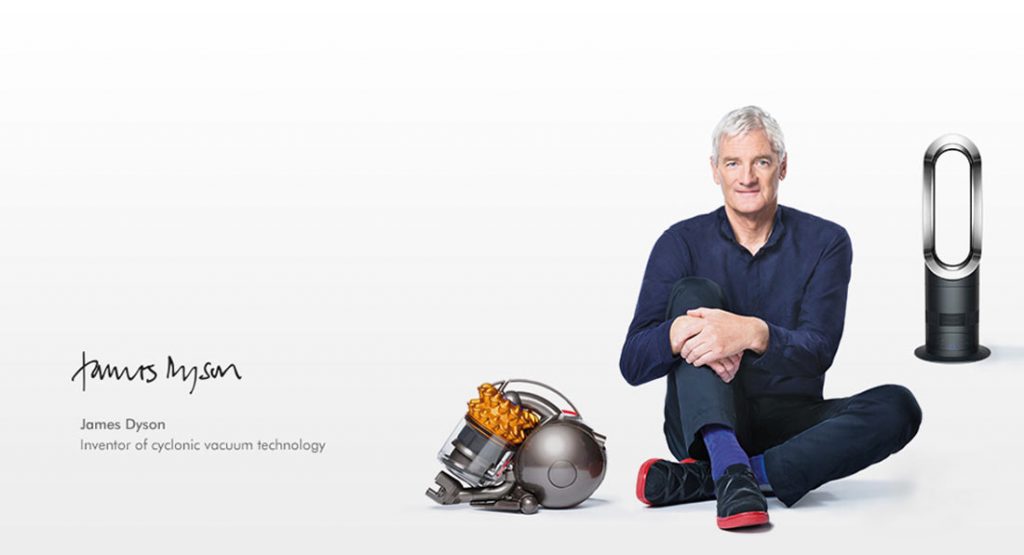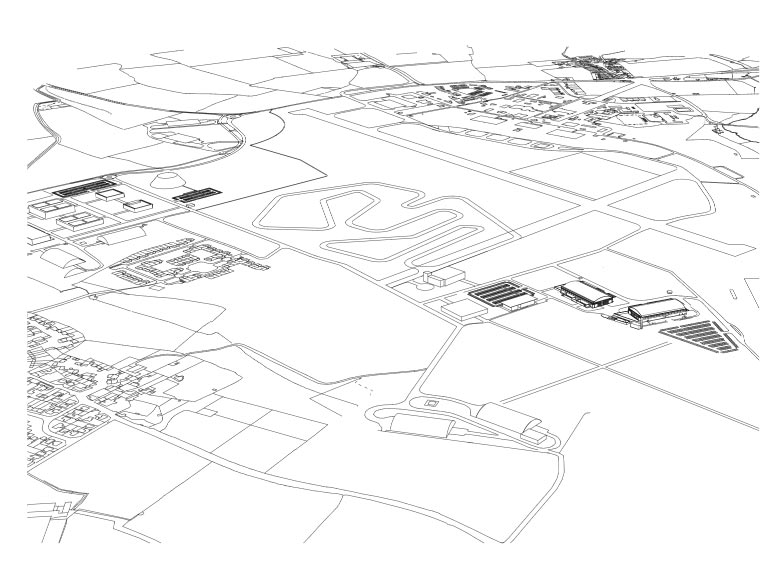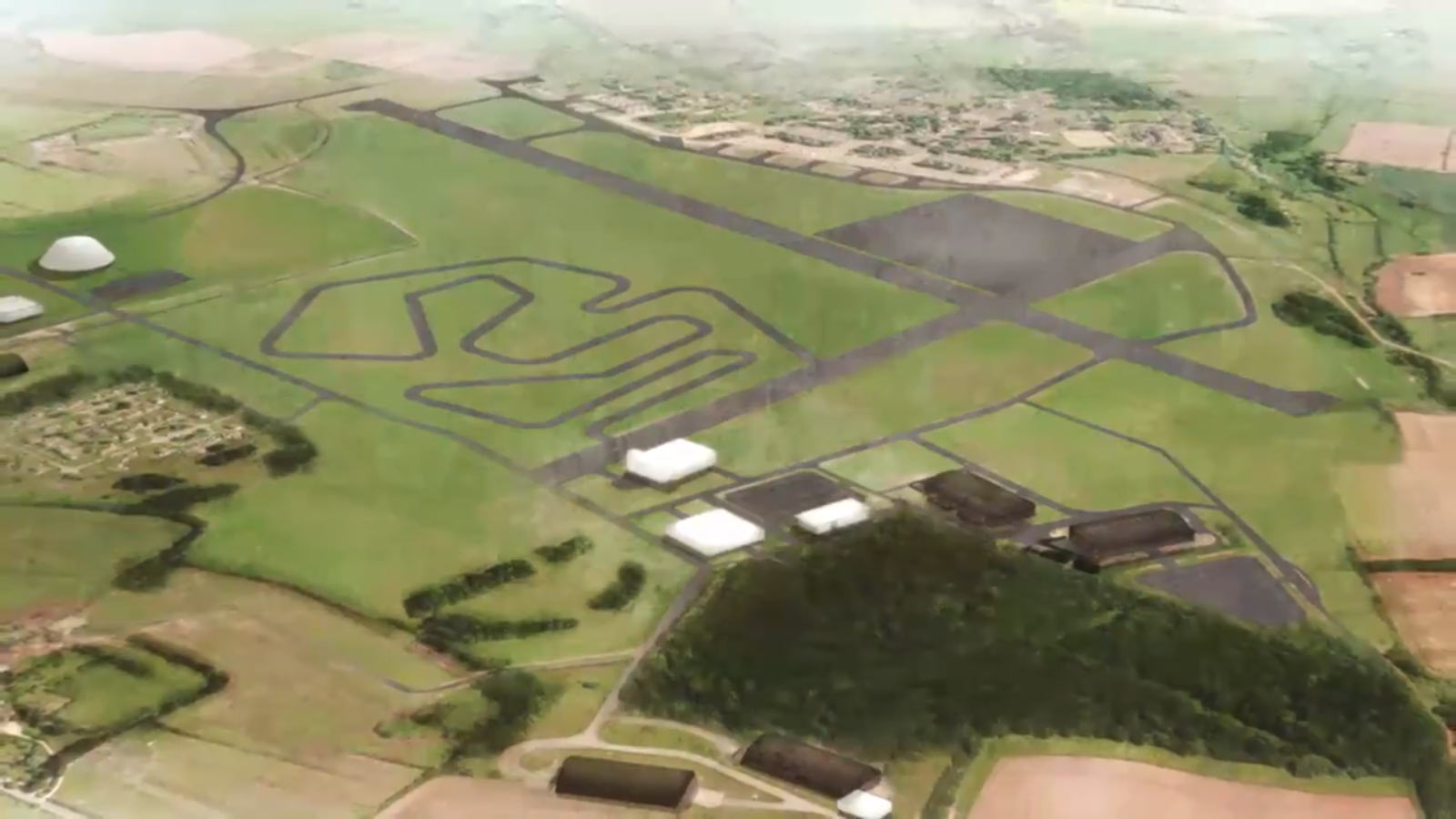Dyson has been keeping a pretty tight lid on their electric vehicle plans, but the company has announced it will significantly expand their operations at the Hullavington Airfield.
According to Dyson’s Phase Two plan, which was submitted to the Wiltshire County Council earlier this month, the vacuum company will transform the site into an automotive testing center. As part of this effort, Dyson will continue to restore hangars at the airbase and will begin construction on “new buildings and areas to put the battery-powered electric vehicle they are currently developing through its paces.”
The company went on to say they will build test tracks, rural and off-road courses as well as a skid pad. Dyson also has plans to create a “high-speed runway” which will be used by cars that can reach speeds in excess of 100 mph (160 km/h). That figure is noteworthy as it suggests the company’s upcoming electric vehicle will be capable of hitting those speeds.
Dyson’s new Hullavington, UK, campus has opened and the automotive team has moved in. But it doesn’t end there. Today Dyson announced the next phase, bringing investment there to £200m. https://t.co/0pudGIxv5Y pic.twitter.com/riKC277e5p
— Dyson (@Dyson) August 30, 2018
Dyson has already spent $110 (£85 / €95) million restoring two hangers on the site and says its full investment at the 750 acre facility will be “far higher. Phase Two will cost $260 (£200 / €223) million and Dyson CEO Jim Rowan said the company plans on investing a total of $715 (£550 / €613) million into the site.
Besides the testing facilities and design / engineering offices, the airfield will have a café, a sports center and a “visitor center for people to learn about Dyson’s new electric vehicle.”
Dyson didn’t say much about the vehicle itself, but previous reports have suggested the model will ride on a unique chassis and use electric motors that are developed in-house. Reports have also suggested the company has plans for three different electric vehicles with the first arriving in 2020 or 2021.






